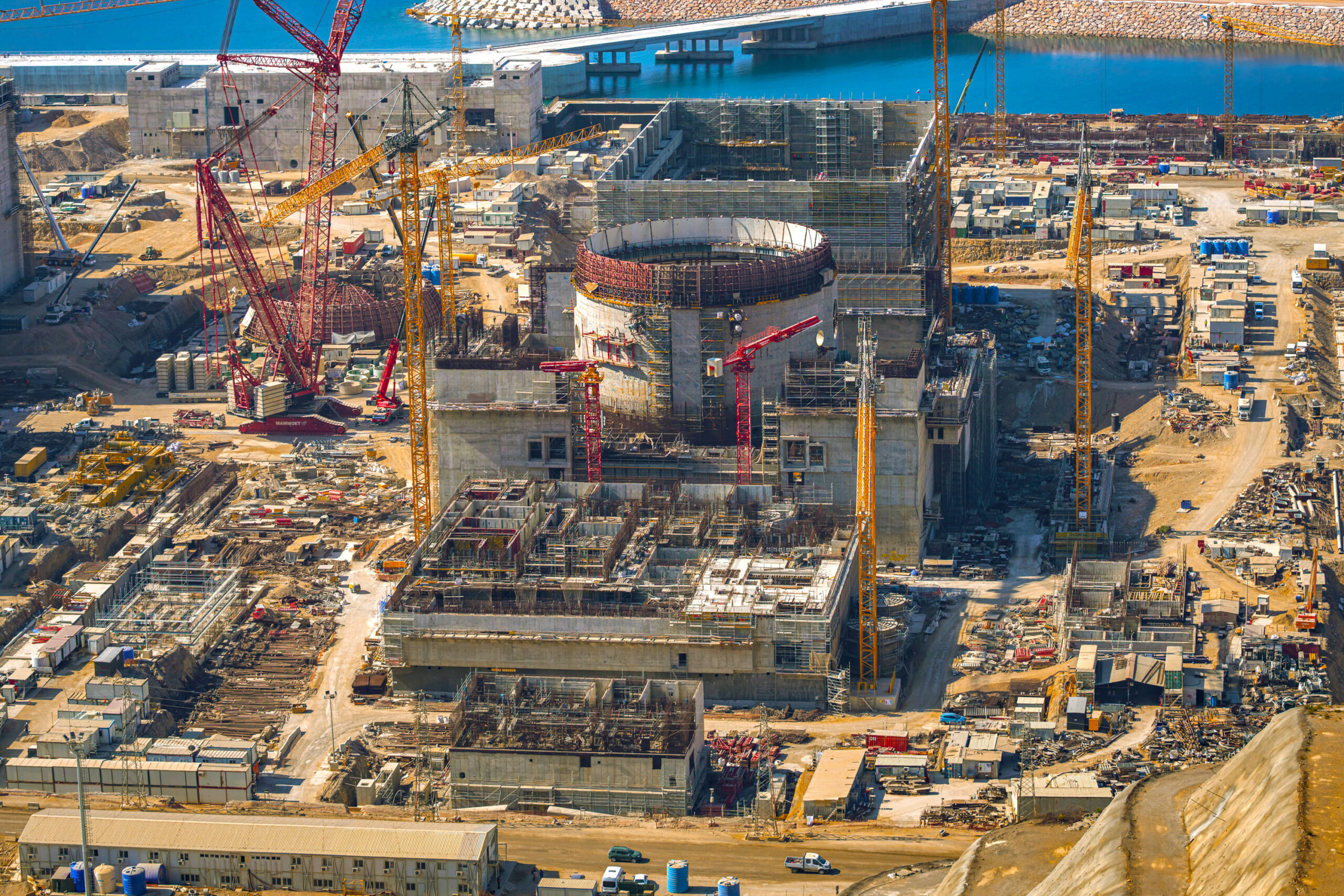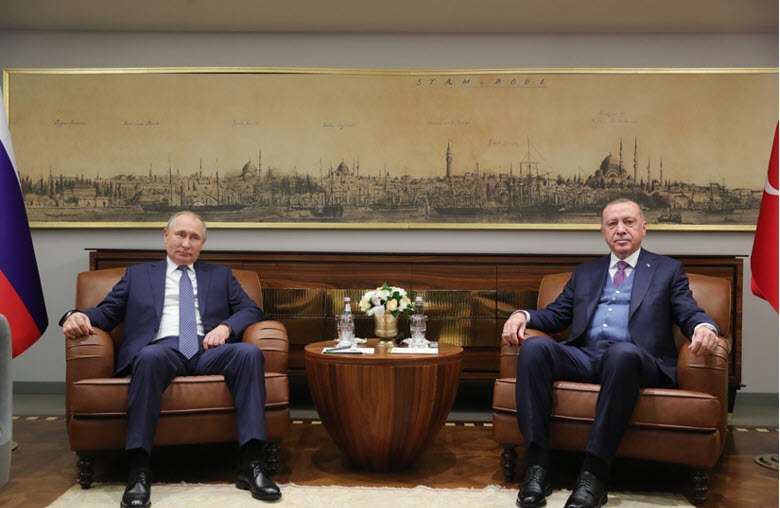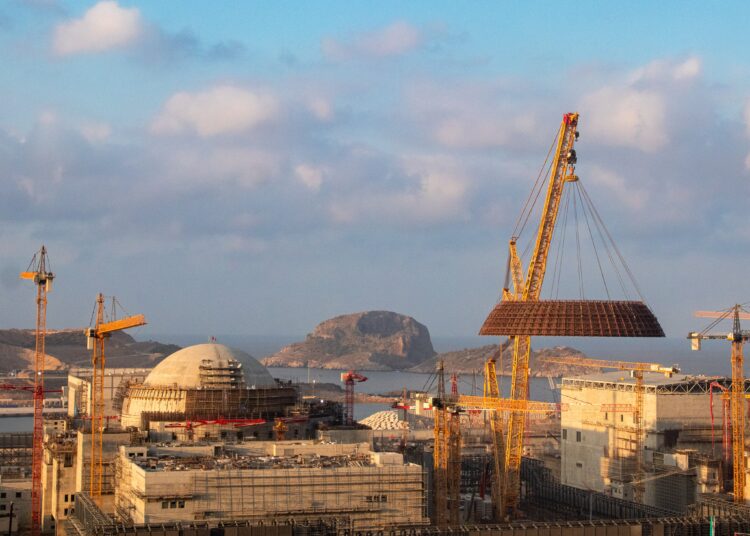Levent Kenez/Stockholm
Construction on Turkey’s first nuclear power plant, the $24 billion Akkuyu project on the Mediterranean coast, has slowed to its weakest pace since the project began, with work halted on three of its four reactors and only the first unit still under active development. Officials say the government has been unable to persuade Russia, which is building the facility, to speed up the project.
Turkish Foreign Minister Hakan Fidan raised the issue directly with Russian President Vladimir Putin during a visit to Moscow in May, seeking support to resolve what Ankara calls outstanding problems at Akkuyu. Fidan also asked Putin to back ongoing talks between Russia’s Gazprom and Turkey’s state pipeline company BOTAŞ, in part related to Turkey’s reported $27 billion natural gas debt to Moscow.
Turkish Energy Minister Alparslan Bayraktar has acknowledged that completion of the first reactor will not come before 2026, a year later than previously forecast, due to a combination of financing delays and Western sanctions on Russia’s state nuclear corporation Rosatom. Bayraktar told the state-owned Anadolu news agency that the project has fallen about 18 months behind schedule; however, according to earlier official statements, Akkuyu was scheduled to begin generating electricity in 2023.
Russia’s Rosatom State Nuclear Energy Corporation has confirmed it is now directing resources solely toward the first reactor to bring it online, leaving the other three units in a suspended state. Heavy machinery has been shut down in multiple parts of the site in Mersin province’s Gülnar district, and all other major civil works are paused.
Turkish officials and company representatives have confirmed that the slowdown has prompted many foreign workers to leave. Numerous Russian and Uzbek employees have returned home after going without pay for up to two months, according to project sources.

Under the 2010 intergovernmental agreement that launched the project, Rosatom finances, builds, owns and operates the plant. The Russian stake in project company Akkuyu Nükleer A.Ş. cannot fall below 51 percent, but up to 49 percent is available for sale. Rosatom has opened talks with potential Turkish and foreign investors for that minority holding, estimated at about $10 billion. So far, no deal has been reached. US and European sanctions imposed after Russia’s 2022 invasion of Ukraine have made potential buyers and lenders wary of involvement. Industry analysts say the scale of the investment, combined with the risk of secondary sanctions, limits the pool of interested parties.
Rosatom was expected to send roughly $7 billion this year to keep construction on track, but the funds have not arrived. Without that cash, Ankara has struggled to secure alternative financing.
The company has requested new tax exemptions, customs facilitation and government-backed guarantees from Turkey. Officials in Ankara have been cautious in responding, slowing negotiations and further delaying funding.
This is not the first time the project has run into financial obstacles. In 2022, $2 billion of a planned $3 billion transfer from Russia was blocked by US authorities during processing through Citibank and JPMorgan, following intervention by the US Department of Justice. That incident underscored Washington’s close monitoring of Russian-Turkish energy cooperation.
Western sanctions have also disrupted supply chains. German industrial giant Siemens, an early supplier of key components, has said it cannot ship certain equipment due to export licensing issues. Rosatom has sought Chinese alternatives for some parts.
The slowdown has coincided with tensions over Turkey’s second planned nuclear power plant at Sinop on the Black Sea coast. Rosatom Director General Alexey Likhachev has said President Recep Tayyip Erdogan previously indicated the project could be awarded to Russia, but Turkey has since entered talks with potential partners from South Korea and China. The Sinop project has also faced delays after Japan’s Mitsubishi Heavy Industries and France’s Engie withdrew from an earlier consortium over rising costs, and discussions are now ongoing with Russia, China and South Korea, though no agreement has been signed.
Turkish media last month reported that Moscow is uneasy about losing the Sinop project and that the uncertainty may be contributing to the lack of urgency on the Russian side at Akkuyu.
When complete, Akkuyu is expected to supply about 10 percent of Turkey’s electricity. Under the agreement, Turkey will buy a large share of its output for 15 years at a fixed price of 12.35 US cents per kilowatt-hour, well above the current Turkish average of 8 cents and higher than typical wholesale prices in the US, UK and France, which range from 4 to 7 cents.
During a May 13 session of parliament’s state enterprises committee, lawmakers criticized the pricing structure and the lack of Turkish equity participation in Akkuyu Nükleer A.Ş., where Rosatom holds 99 percent of the shares. They requested documents on ownership and decision-making processes, warning of excessive foreign control over a strategic asset.
Despite the setbacks, Akkuyu remains one of President Erdogan’s showcase projects and is expected to feature prominently in the run-up to the 2028 general election or any earlier vote, promoted as proof that Turkey is becoming a nuclear power. Along with domestic defense systems, a national electric car and plans for a Turkish-built aircraft, Erdogan presents the plant as a symbol of the country’s progress.

Fuel for the first reactor was delivered late last year. Each of the remaining units was initially scheduled to follow at one-year intervals, but the current halt in construction has made that timeline unlikely.
Turkey imports most of its natural gas, with Russia as the leading supplier. Akkuyu is intended to reduce that dependence by displacing part of the gas used for power generation. Officials have also announced plans for a third nuclear plant in İğneada, near the Bulgarian border.
The Akkuyu facility is the first nuclear project in the world to be built under a full build-own-operate model by Rosatom. Its four Russian-designed VVER-1200 reactors are meant to produce a total of 4,800 megawatts.












